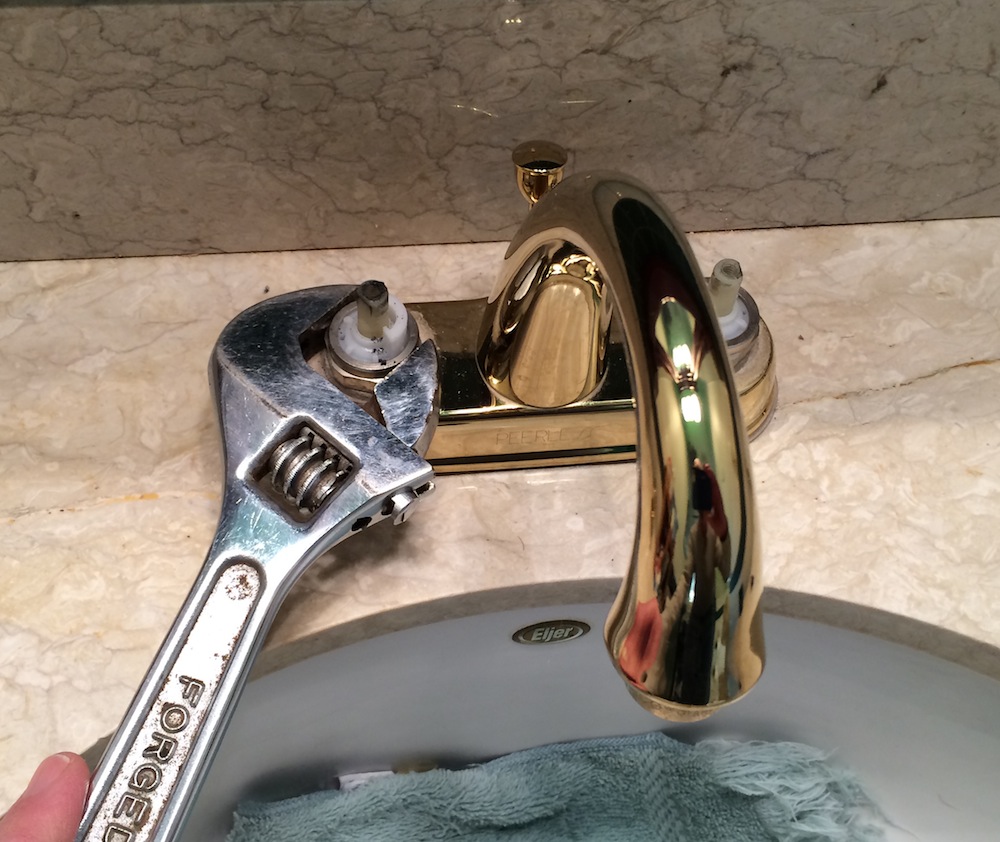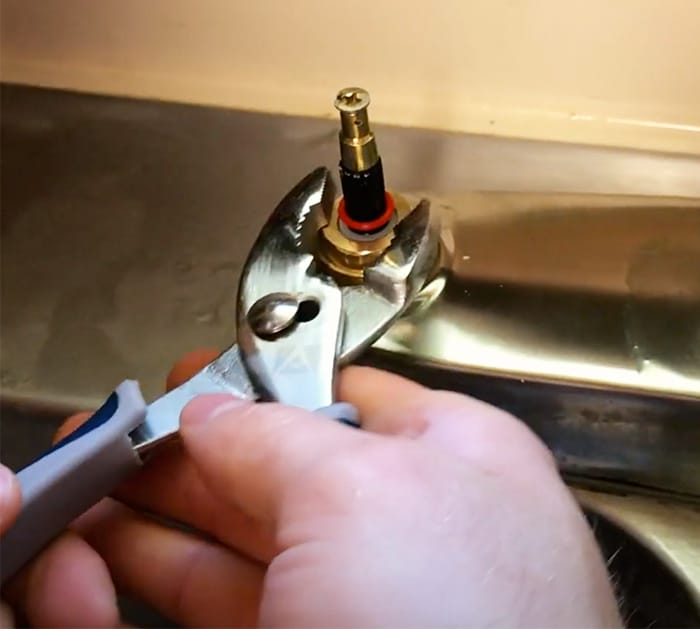The writer is making several good pointers on 4 Common Reasons for a Leaky Faucet overall in this content which follows.

Leaking taps might seem like a minor inconvenience, however their influence exceeds just the annoyance of the audio. From drainage to incurring unnecessary monetary prices and health risks, overlooking a trickling faucet can cause numerous consequences. In this short article, we'll delve into why it's crucial to resolve this typical family issue immediately and efficiently.
Wastefulness of Water
Environmental Impact
Trickling faucets contribute substantially to water waste. According to the Epa (EPA), a solitary tap leaking at one drip per second can squander more than 3,000 gallons of water annually. This not only stress water resources however also affects ecosystems and wild animals depending on them.
Financial Prices
Boosted Water Expenses
Past the ecological influence, dripping taps can pump up water expenses significantly. The built up wastage over time translates right into higher energy expenses, which could have been stayed clear of with prompt repair services.
Prospective Residential Or Commercial Property Damages
Additionally, extended leaking can bring about damage to fixtures and surfaces surrounding the tap. Water build-up can cause staining, corrosion, and even structural concerns if left ignored, leading to additional repair expenses.
Health Problems
Mold And Mildew and Mold Growth
The constant visibility of dampness from a leaking faucet develops a suitable environment for mold and mold development. These fungi not just endanger indoor air quality but additionally pose health risks, especially for individuals with respiratory system conditions or allergies.
Waterborne Diseases
Stationary water in trickling taps can become a breeding ground for bacteria and various other microorganisms, boosting the danger of waterborne conditions. Pollutants such as Legionella microorganisms prosper in stationary water, potentially resulting in major diseases when consumed or inhaled.
DIY vs. Professional Repair work
Advantages and disadvantages of Do It Yourself Repair Service
While some may try to take care of a dripping faucet themselves, DIY repair work feature their own collection of obstacles. Without appropriate understanding and tools, do it yourself attempts can aggravate the issue or result in insufficient repair work, lengthening the problem.
Advantages of Hiring a Professional Plumber
Hiring a professional plumber guarantees that the underlying cause of the leaking tap is attended to efficiently. Plumbings have the experience and devices to identify and fix faucet issues successfully, conserving time and reducing the danger of more damage.
Step-by-Step Overview to Fixing a Dripping Faucet
Tools Required
Prior to trying to fix a trickling tap, gather the essential devices, consisting of an adjustable wrench, screwdrivers, substitute parts (such as washing machines or cartridges), and plumber's tape.
Common Faucet Issues and Their Solutions
Identify the sort of tap and the particular concern creating the drip. Usual problems include damaged washers, corroded shutoff seats, or faulty O-rings. Describe supplier instructions or on-line tutorials for detailed assistance on fixings.
Safety nets
Regular Maintenance Tips
To prevent leaking faucets, perform routine maintenance such as cleaning aerators, checking for leakages, and changing worn-out parts promptly. Furthermore, take into consideration installing water-saving gadgets or upgrading to more reliable fixtures.
Importance of Prompt Repairs
Attending to leaking faucets as soon as they're discovered stops more water waste and potential damages, ultimately saving both water and cash over time.
Impact on Residential Property Value
Understanding of Well-Maintained Residential Property
Preserving a home in good condition, including resolving upkeep issues like trickling taps, boosts its regarded worth and desirability amongst possible purchasers or renters.
Impact on Resale Worth
Features with well-maintained plumbing components, including faucets, command higher resale worths in the property market. Dealing with leaking faucets can add to a positive perception throughout residential property evaluations and arrangements.
Ecological Responsibility
Specific Contribution to Conservation
Taking responsibility for repairing dripping taps aligns with broader efforts towards water conservation and ecological sustainability. Every individual's activities jointly make a significant impact on protecting valuable sources.
Sustainable Living Practices
By prioritizing prompt repair services and taking on water-saving routines, individuals contribute to lasting living techniques that benefit both existing and future generations.
Final thought
Addressing a trickling faucet surpasses plain comfort; it's a necessary action towards conserving water, lowering financial expenses, and guarding health and building. Whether through DIY repair services or specialist aid, taking action to repair dripping taps is a tiny yet impactful means to advertise liable stewardship of sources and add to a much healthier, a lot more lasting future.
How to Fix a Leaky Faucet: Step-by-Step Repair Guide
A leaky faucet may seem like a simple annoyance, but if it's not fixed promptly, that leak could cost hundreds to potentially thousands. From water damage to mold, mildew, and high water bills, even a tiny leak can be catastrophic if left unattended. Damage like this can even affect the overall value of your home, so it's important to take the right approach for leaky faucet repair. You may need the help of a plumber in some cases, but we've got a few tips you can try on how to fix a leaky faucet before calling the pros.
Four Faucet Types
When you're learning how to fix a leaky faucet, the first step is knowing what kind of faucet you're working with! There are four common types.
Cartridge Faucets
Cartridge faucets come in one- or two-handled varieties. In one-handled cartridge faucets, hot and cold water combines in a single cartridge. In the two-handled versions, hot and cold water are controlled separately and mixed in the faucet.
Ball Faucets
Ball faucets have a single lever you push up and down to adjust the pressure and rotate to change the temperature. A slotted metal ball controls the amount of water allowed into the spout.
Compression Washer Faucets
They're the oldest type of faucet, but they're still used in many homes — especially older ones. Compression faucets have two separate handles that, when turned, raise or lower the washer that seals a water valve. This valve stops water from flowing through the faucet when it is turned off.
Disc Faucets
Disc faucets rarely need to be repaired due to their maintenance-free design. The water flow is controlled by two discs — the upper one raises and lowers against a fixed lower disc, creating a watertight seal. If your disc faucet starts leaking, you may need to replace the seals or clean residue buildup from the inlets.
Fixing a Leaky Faucet
Step 1: Turn Off the Water
Whether you're learning how to fix a leaky bathtub faucet or how to fix a leaky kitchen faucet, always turn off the water supply to your working area when you're fixing a leak. The last thing you want is a flood added to your list of things to fix.
Look for the shutoff valves below your sink or around the tub and turn them clockwise to stop the water flow. If your faucet doesn't have shutoff valves, you may need to turn off the water for the whole house. Check to make sure it's off by turning the faucet on. If nothing comes out, you're ready to start the repair.
Step 2: Take Apart the Faucet
How you disassemble your faucet depends on the type of fixture you have. You can use a flathead screwdriver to remove the caps on top of the handle or handles for cartridge and compression faucets. Inside, you should see handle screws. Unscrew these with a screwdriver to remove the handle.
Disc- and ball-style faucets will typically have an inlet screw near the handle, and removing that will reveal the interior of the faucet.
Detach the Valve Stem
For cartridge- and compression-style faucets, you'll see the inner valve stem or cartridge once you remove the faucet handles. If you have a compression faucet, unscrew the brass valve stem. If you have a cartridge faucet, pull out the cartridge. If your cartridge has been in place for a while, it may require some tools or extra force to remove it due to mineral deposits.
Examine and Replace Parts
Once you've removed the parts, check them out to confirm what needs to be replaced. You may see corroded rubber washers, O-rings, stems, or cartridges. On a ball-style faucet, check the seats and springs for damage.
If you need to repair a leaky disc faucet, check the inlet and seals on the lower disc.
Once you determine what parts must be replaced, visit your local hardware store. Bring the damaged parts with you to ensure you can purchase the correct components to replace them.
Clean Valves and Faucet Cavity
If you've removed a stem or cartridge, you may notice mineral buildup in the faucet's threads. Use white vinegar to clean the valve seat by soaking it for a few minutes, then scrub it away with a soft toothbrush and rinse with warm water. You can also clean the interior of the faucet in the same way.
Reassemble the Faucet
Once your faucet is cleaned and the required parts have been replaced, it's time to reassemble it. Put the pieces back together and slowly turn the water supply back on. Doing this slowly is crucial because too much initial water pressure can damage the new hardware you've just installed.
https://homewarranty.firstam.com/blog/how-to-fix-leaky-faucet

We hope you liked our piece about Water Dripping from Faucet: Why and How to Fix. Thanks a ton for taking a few minutes to read through our content. Sharing is caring. Helping people is fun. I cherish reading our article about What Causes Leaky Faucets & How To Fix Them.